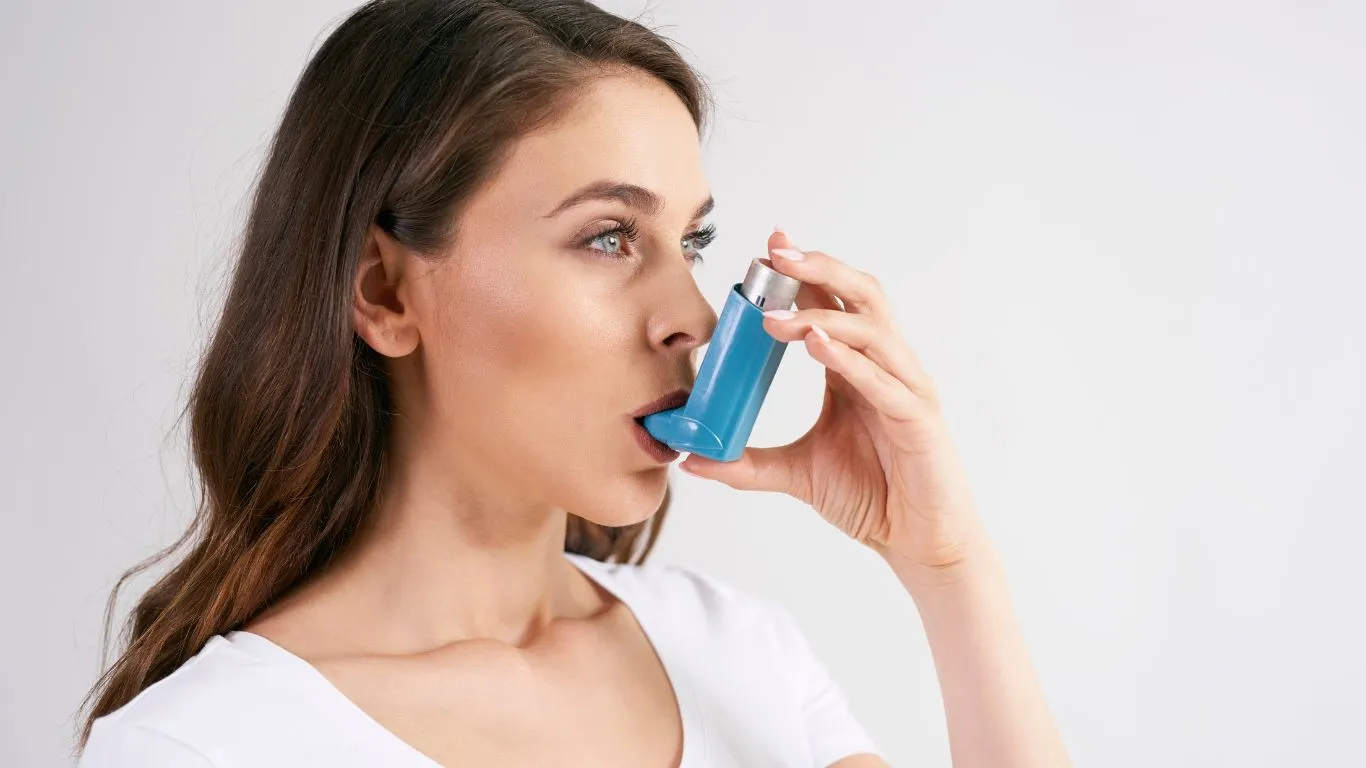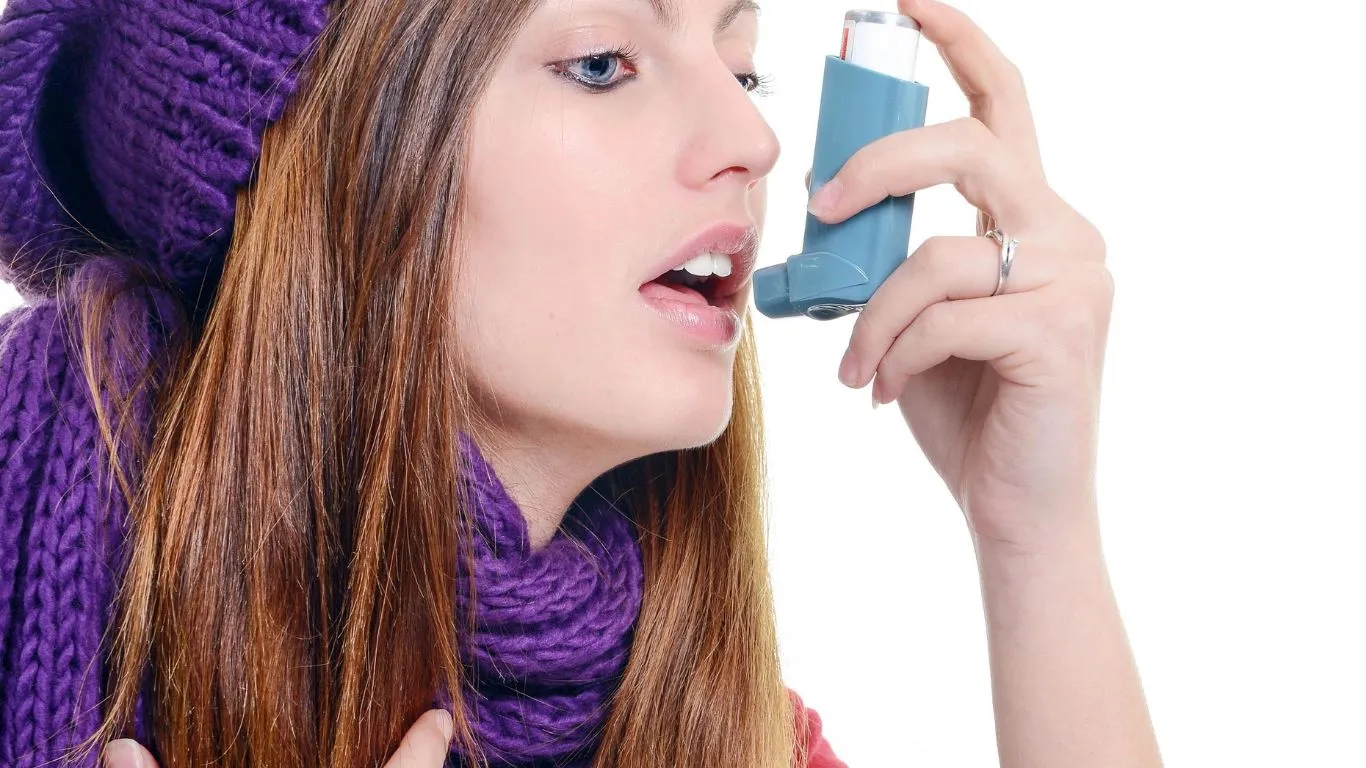Can Asthma Cause Excessive Thirst and Dry Mouth? Uncover the Truth
Ever found yourself sipping water nonstop during an asthma flare-up and wondered, can asthma cause excessive thirst and dry mouth? You’re not alone—I’ve noticed this in countless patients over the years working as a pulmonary nurse, and honestly, it’s something I’ve had to dive into myself. Sometimes it’s not the obvious wheezing or breathlessness that brings someone into the clinic, but that nagging dry mouth and an unshakable thirst that just won’t quit. Sounds familiar? Let’s get into what might really be going on and why your airways could be messing with your hydration.
Understanding the Link Between Asthma and Hydration

Most people associate asthma with just the classic symptoms: coughing, wheezing, and shortness of breath. But what about the sneaky symptoms that no one talks about? As someone who’s been right at the bedside with asthma patients—often in the middle of the night when their symptoms are at their worst—I can tell you dry mouth and feeling unusually thirsty show up more than people think.
So, what gives? Well, there are a few reasons this happens:
1. Medications May Be the Culprit
First thing I always look at is the meds. Inhalers—especially beta-agonists like albuterol—can dry you out big time. These drugs work by relaxing your airway muscles, but a side effect? They can reduce saliva production, which leaves your mouth feeling like a desert.
- Short-acting inhalers: These are great in a pinch but can cause dry mouth if used often.
- Long-acting bronchodilators: Also known to contribute to that parched feeling.
- Oral corticosteroids: When patients are on these for severe flare-ups, thirst complaints shoot through the roof.
From my own experience managing medication schedules, I’ve seen patients go from feeling totally normal to sipping ice chips all day just from a bump in inhaler use.
2. Breathing Through the Mouth During Attacks
This one’s pretty straightforward. When asthma flares up, breathing through your nose can be tough—so your body switches to mouth breathing, especially at night. And guess what? Mouth breathing dries out your saliva faster than a summer windstorm in the desert.
I’ve had patients come in thinking they had an underlying infection, when in reality, their night-time asthma symptoms had them mouth-breathing for hours, leading to a dry mouth and sore throat.
3. Dehydration from Increased Respiratory Rate
During an asthma episode, your body might be working overtime to get enough air in. That fast, shallow breathing actually causes more fluid loss through the respiratory tract. That means you’re not just thirsty—you’re actively losing hydration with every breath.
One of my long-time patients used to describe it perfectly: “It’s like I just ran a marathon, and all I did was sit on the couch wheezing.”
What Does This Mean For You?

Now, knowing that asthma can absolutely be behind that cottonmouth feeling, what can you do about it? More importantly, how can you tell when it’s something minor—or when it needs attention? Let’s break it down based on what I’ve seen work with real patients.
Recognizing When Dry Mouth is More Than Just a Nuisance
Sometimes, it’s nothing major. But other times, it might be a sign that your asthma management plan needs a little tweak.
- If you’re using your inhaler more than usual and feeling parched—talk to your provider.
- If you’re waking up in the night super thirsty, it might be time to evaluate your asthma control or ask about a humidifier.
- Persistent dry mouth can lead to dental issues, so don’t ignore it!
I always tell my patients: your body’s talking—you just have to listen to it. That excessive thirst could be your early warning system.
Tips to Manage Asthma-Related Thirst and Dry Mouth

Alright, here’s where it gets practical. If you’re dealing with this right now, or even just wondering how to avoid it, I’ve got some go-to tips from both the clinic and my own daily life working with asthma patients.
- Stay ahead on fluids: Sip water regularly, not just when you’re already thirsty.
- Use a spacer with your inhaler: Helps cut down on side effects like dry mouth.
- Try sugar-free lozenges or mouth sprays: These can really help stimulate saliva.
- Keep your bedroom air moist: A cool-mist humidifier can make a world of difference.
- Don’t skip your follow-ups: Regular asthma check-ins help adjust meds before side effects creep in.
Whether it’s you or someone you love dealing with asthma, remember—it’s not just about breathing. It’s about how that breathing impacts everything else, including something as basic as staying hydrated. And trust me, as a nurse who’s walked the asthma road with hundreds of patients, those “small” symptoms? They matter more than you think.
When Should You Be Concerned About Excessive Thirst?

Okay, so we’ve talked about how asthma might be drying you out—but when is it actually a red flag? I always tell my patients: if something feels off and it’s persistent, it’s worth bringing up. And excessive thirst isn’t something to brush off, especially if it’s paired with other changes.
Here’s what I’ve seen as indicators that it might be time for a deeper look:
- Unquenchable thirst: You’re drinking all day, even waking up at night to chug water, and still feel parched.
- Fatigue and dizziness: These could point to dehydration—or something else more serious, like blood sugar imbalance.
- Frequent urination: Might not seem connected to asthma, but it could be a sign that something else is driving the thirst.
One of my patients, a 40-something teacher who managed her asthma well for years, suddenly started feeling like she couldn’t get enough water. She chalked it up to seasonal allergies. But when we did a little digging, it turned out her inhaler routine had changed—and the new med was drying her out more than expected. Adjusting it made all the difference.
Can Asthma Cause Excessive Thirst and Dry Mouth in Children?

This question comes up all the time from parents. And as someone who’s worked with pediatric asthma patients, I can tell you—it absolutely can. Kids aren’t always great at telling you exactly what they’re feeling, so symptoms like dry mouth or thirst often go unnoticed until they become more obvious.
What to Watch For in Kids
- Chapped lips: A sign they’re licking their lips often due to dryness.
- Asking for water constantly: Especially noticeable at bedtime or during/after sports.
- Cranky or tired more than usual: Dehydration can affect mood and energy levels big time.
I remember a young patient—we’ll call him Jacob—who always carried a water bottle around the clinic like it was his security blanket. His mom thought it was just a habit, but it turned out his nighttime inhaler was drying out his mouth. Once we adjusted his schedule and added a humidifier in his room, it was like night and day. Happier kid, better sleep, less thirst. Wins all around.
Could It Be Something Other Than Asthma?

This part’s important. While asthma and its treatments can absolutely lead to dry mouth and thirst, they aren’t the only suspects. In fact, I always advise looking at the big picture—because sometimes what feels like asthma-related symptoms can actually be masking something else.
Other Conditions That Can Mimic These Symptoms
- Diabetes: This one tops the list. High blood sugar leads to dehydration, which can cause thirst and dry mouth—sometimes before other symptoms show up.
- Anxiety or panic disorders: Fast breathing and mouth dryness often go hand in hand during an anxiety episode.
- Sleep apnea: Breathing through the mouth all night doesn’t just leave you groggy—it can seriously dry you out.
- Medication side effects: Beyond asthma meds, antidepressants, antihistamines, and even some blood pressure drugs can zap your moisture levels.
I once worked with a woman who came in convinced her asthma was getting worse. But after a full review, we found out her new anxiety medication was to blame for the dry mouth. Her asthma was stable—but the new prescription was throwing her off. It’s never just one thing, and that’s why a full symptom review is crucial.
How to Talk to Your Doctor About It
If you’re experiencing ongoing thirst and dry mouth, and you have asthma, don’t just assume it’s par for the course. Bring it up! Healthcare providers—myself included—want to hear the full story so we can piece things together.
What Helps Us Help You:
- Track your symptoms: When do you feel the thirst the most? Is it after taking meds? At night?
- List all your medications: Even over-the-counter stuff can matter.
- Mention any lifestyle changes: New diet, job stress, travel—anything out of the ordinary helps paint the picture.
From my nursing chair, I’ve seen how patients who advocate for themselves often get better care, faster. So don’t be shy—if something feels “off,” it’s probably worth a conversation.
Home Remedies to Ease Dry Mouth Without Messing With Asthma Meds
If you’re not ready (or don’t need) to switch up your medication regimen just yet, there are a few gentle, at-home strategies I’ve recommended over the years that really help soothe the dryness.
- Try xylitol gum or mints: They help increase saliva naturally and taste good too.
- Rinse with a mouthwash made for dry mouth: Biotène is a popular one with my patients.
- Avoid caffeine and alcohol: Both are sneaky dehydrators, especially when your body’s already struggling to stay moist.
- Hydrate smart: Add electrolytes if you’re breathing fast or sweating more than usual due to asthma symptoms.
And here’s something I personally love suggesting: try frozen fruit like pineapple chunks or grapes. Not only are they refreshing, but they stimulate saliva and can offer a little sweetness without drying you out. Way better than sugary drinks or salty snacks when you’re already dealing with thirst.
Long-Term Management of Asthma to Reduce Thirst and Dry Mouth

Alright, so if you’re still with me, you’re probably looking for more than just a quick fix—and I get it. As a pulmonary nurse, I’ve seen firsthand how long-term asthma management can either make life a whole lot easier… or leave you constantly reaching for your water bottle. And yeah, can asthma cause excessive thirst and dry mouth? Definitely. But with the right strategy, that doesn’t have to be your norm.
Consistency Is Key
The biggest game-changer I’ve seen in my practice? Consistency. Taking your medications as prescribed—not just when you’re feeling symptoms—helps prevent the kind of flare-ups that lead to dry mouth-inducing inhaler overuse.
- Stick to your maintenance inhalers: These reduce inflammation and help prevent the cycle of needing rescue meds constantly.
- Follow up regularly: What worked last season might not work now. Adjustments based on lifestyle and environmental triggers can make a huge difference.
- Use a spacer: It’s not just for kids! It helps the medicine go where it needs to and cuts down on oral side effects.
I remember a patient, retired firefighter, used to tough things out until it got really bad. Once we worked on a daily routine with his inhalers and tracked side effects like dry mouth, he told me he felt like he “got his breath and his coffee enjoyment back.” Little changes, big impact.
How Your Environment Plays a Role

Sometimes the answer isn’t in the medicine cabinet—it’s in the room around you. Environmental triggers can quietly make asthma worse and indirectly lead to that dry, thirsty feeling. I always ask patients about their living space, especially when their symptoms feel “off.”
What to Consider at Home or Work:
- Dry air: Especially in winter, indoor heating can zap moisture from the air and your body.
- Dust and allergens: Even if you’re not allergic, these can irritate your airways and increase asthma symptoms.
- Strong scents or cleaners: I’ve had patients connect new air fresheners or cleaning products with sudden flare-ups.
A personal tip? Get a humidifier with a built-in hygrometer. That way, you can monitor and adjust the moisture levels instead of guessing. And keep your bedroom allergen-free—it’s where you spend hours breathing the same air each night.
Hydration Hacks for Asthma Sufferers
We’ve touched on hydration, but let’s dig into some creative and sustainable ways to stay ahead of that dry mouth and thirst—without just chugging gallons of water all day (been there, done that).
Some Refreshing Ideas:
- Infused water: Add cucumber, mint, or citrus to keep your water interesting. I swear, it makes you drink more without realizing it.
- Electrolyte drinks (the low-sugar kind): Especially helpful if you’ve been coughing a lot or breathing heavily.
- High-water foods: Think watermelon, cucumber, celery—easy ways to boost hydration and snack smarter.
- Coconut water: Great natural alternative to sports drinks, and often better tolerated if your stomach is sensitive.
Also, don’t wait until you’re thirsty. If you’re already feeling dry, you’re probably already behind on fluids. I keep a large water bottle with a time marker—it’s cheesy, but it works!
Final Thoughts: Listening to Your Body and Advocating for Your Health
Living with asthma means learning to understand your body’s patterns and recognizing when something isn’t quite right. That excessive thirst? That dry, sticky mouth? It could be your asthma talking—or it could be your meds, your routine, or even your surroundings.
Don’t ignore those whispers. I’ve had countless patients thank me later for pushing them to investigate beyond the obvious. And if you ever feel brushed off when you bring it up? Push back. Your health matters, and so do these “small” symptoms. They’re often the earliest clues to bigger issues.
As a nurse, I can’t stress enough: the more you learn and track, the better you can manage. And the better you manage, the less likely you are to suffer from sneaky symptoms like chronic dry mouth and thirst that make life just a little harder than it needs to be.
References
- National Institutes of Health (NIH)
- Health.com
- Centers for Disease Control and Prevention (CDC)
- Mayo Clinic
Disclaimer
This article is for informational purposes only and is not a substitute for professional medical advice, diagnosis, or treatment. Always seek the advice of your physician or other qualified health provider with any questions you may have regarding a medical condition. Never disregard professional advice or delay in seeking it because of something you have read here. If you think you may have a medical emergency, call your doctor or 911 immediately.

Bianca Nala is a compassionate Nurse Practitioner with a strong background in primary and respiratory care. As a health writer for Healthusias.com, she combines her clinical expertise with a talent for clear, relatable storytelling to help readers better understand their health. Bianca focuses on topics like asthma, COPD, chronic cough, and overall lung health, aiming to simplify complex medical topics without losing accuracy. Whether she’s treating patients or writing articles, Bianca is driven by a single goal: making quality healthcare knowledge accessible to everyone.







